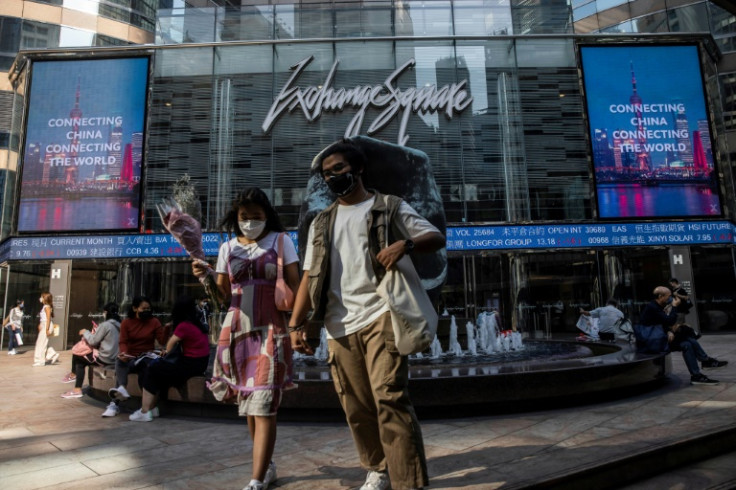Did China Kill Hong Kong's Competitiveness?

Hong Kong's economy is becoming less and less competitive in world markets.
That's according to a recent International Institute for Management Development (IMD) World Competitiveness Report (WCR), which ranks Hong Kong as the 7th most competitive country in 2023, down from the 2nd position in 2019.
IMD's WCR ranking applies 336 criteria across four categories to determine the capacity of countries to create and preserve wealth: economic performance, government efficiency, business efficiency, and infrastructure.
Hong Kong's decline in WCR ranking is due mainly to a decline in business and economic performance, followed by a slide in government performance.
The semi-autonomous region of China has occupied the top positions in the WCR reports for years thanks to several advantages, like a strategic location, a business-friendly regime, free trade and open markets, an efficient physical and financial infrastructure, a skilled workforce, and the rule of law and political stability.
The Hong Kong government was quick to blame the pandemic for the city's drop in international competitiveness.
But Hong Kong wasn't the only place hit by the covid pandemic. So were all other parties included in the ranking.
Thus, the cause must be searched in other factors like the national security law Beijing imposed to suppress the pro-democracy movement and exercise control over the semi-autonomous region of Hong Kong.
While the law served the interests of Beijing, more is needed to accommodate the interests of local businesses and the economy. For instance, the law has fueled a massive exit of talented people seeking a better home overseas. In addition, the law ended the one country, two systems regime and discouraged foreign businesses from using Hong Kong as the business hub for Asia as it once was.
"When the Chinese Communist Party (CCP) took control over the lives and future of Hong Kong citizens and businesses, one could expect no other result than the loss of political and economic freedom and competitiveness," Juscelino Colares, an international law professor at Case Western Reserve University, told International Business Times. "This is not only a story about Hong Kong losing its special trade status with the United States (the focus of a current WTO dispute brought by Hong Kong that will lead to nowhere) and other countries, but also a recognition that the predictability and ability to independently control one's investments in a CCP-controlled Hong Kong are gone. "
Colares believes Beijing violated the one-country, two-systems regime, a binding promise it made to the UK to carry through to 2047. "The CCP intervention on businesses like the Ant Group, show the true nature of the intentions of the Beijing regime and, predictably, contributed to Hong Kong's loss of competitiveness," he said.
Dr. Michael Edesess, Managing partner / special advisor at M1KLLC, doesn't think China's national security law killed Hong Kong's competitiveness, nor it cause any harm to its economy. And he blames the U.S for funding the pro-democracy movement.
"Violent and very destructive riots in Hong Kong that were carried out virtually every day in the last half of 2019 were largely funded by the US through its agents like the National Endowment for Democracy and others," he told IBT. "The mid-2019 non-violent protests that quickly devolved into months of riots were fueled by suspicion of mainland China, not by any actual wrongdoing on the part of mainland China or the Hong Kong government."
Edesess blames the Western media for Hong Kong's image problem. "The often-seen verdict in the Western press that 'China violated its one country - two systems promise' has no basis whatsoever," he said. "Nor is it in any way an accurate description of the violent riots to call them simply 'pro-democracy protests' as the US press invariably does."
Dr. Tenpao Lee, professor emeritus of economics at Niagara University, has another theory. He thinks Hong Kong's role in the global economy is in decline after China's entry into the global economy, as Beijing has become a formidable competitor to Hong Kong's economy. "China can offer anything that either Hong Kong or Taiwan could offer," he told IBT.
"In addition, China's size and its potential markets are formidable and irreplaceable. As a result, both Hong Kong and Taiwan will be marginalized in the global economy if China can develop itself consistently."
However, he thinks China, too, is vulnerable in many ways. "For example, China has political issues internally with Xiangjiang, Tibet, and Taiwan, he said. "China's income distribution has a significant gap between the rich and the poor. China's infrastructure is inconsistent from urban to rural areas."
© Copyright IBTimes 2025. All rights reserved.






















